
Do you struggle to find good content to post on LinkedIn, Twitter or your Facebook page?
Would you like to find reliable sources of content your fans and followers love?
This article contains eight tips to help you quickly find great content.
Why Share Other People’s Content?
It’s all about becoming a valuable resource. When you can dig up great articles your audience is interested in–regardless of the source–you’ll become more respected and your content will be widely shared.
And when you have some of your own content to share, people will be more likely to help spread the word.
Here’s where to find valuable content:
#1: Watch Large News Sites
Depending on your industry, you may find topical and interesting articles on large news sites such as USA Today, The New York Times and The Wall Street Journal. If you have a news site or magazine for your niche that provides industry news, make sure you have that bookmarked as part of your content.
The Huffington Post has a lot of different categories to draw your content from.
#2: Watch News Aggregators
If you want to make content sourcing a little easier, use a news aggregator website or tool. Certain sites do a great job of bringing in the latest news and sorting it by industry or niche all in one place.
Stuff To Tweet has some of the most popular posts on different sites including CNN, YouTube and more. Yes, it does mention tweeting, but these articles are good for Facebook, too.
Popurls is another similar site that has a few more sites listed. You can alsocustomize the results if you sign up for an account.
Alltop is another news aggregator where you can customize your results. The topics are organized by topic alphabetically and by site.
Inbound also uses categories to help organize their content. They tend to be more online-related topics.
If you like receiving an email with aggregated news, SmartBrief may be a good fit for you. They include a variety of industries and send you an email with the popular news.
#3: Pay Attention to Popular Posts
You can also see things that are trending and popular on some of the other social media sites and share them to Facebook.
LinkedIn today has some great features such as Trending in Your Network, which is a natural filter if you are connected to a lot of people in your niche.
You can also see what’s trending on Twitter even if you don’t have a Twitter account. Just go to any Twitter account (such as www.twitter.com/smexaminer) andlook on the left side to see the hot topics.
Notice that you can switch the trends by clicking the Change link and selecting a certain region to get more localized results. Are these trending topics always the best things to share on Facebook? Maybe not, but they can be relevant.
You may be better off just using Twitter Search and plug in some of your niche keywords to find some good articles to share on Facebook.
#4: Have Go-to Sources to Share
Many times you know which other Facebook Pages consistently have good content and valuable posts. They may be in your industry or they may be a complement to your business so your audience will also be interested in their content.
There are a few different ways to watch their Facebook posts. One is to like their Page as your Page and then watch your Page news feed. This makes it easy toshare their posts when you see them in your news feed.
Another way to easily monitor other Pages is to create an Interest List of all of the Pages on your personal profile and periodically monitor that feed.
You can make this Interest List public so other people can follow it, or you can make it private so only you know who is on it.
Mari Smith made a public list of Facebook Experts and it’s followed by almost 30,000 people!
When you have the Interest List on your personal profile, sharing it to your Facebook Page is not hard. Just select the Share button and then switch the selection to On your Page. Then make sure the right Page is selected and the post will be shared by your Page.

You can find public lists that other people have created by going to Facebook Add List (this is the same URL you use to create your own list). They first show you some of the lists that your friends have created or may be on and then they sort the popular lists by topic.
#5: Use Google Reader and Google Alerts
If you have several (or even several hundred) blogs you enjoy reading that provide great content, use Google Reader to access them all from one place. You can easily see the latest posts or just click on the particular blog in the left sidebar to see some of their latest posts. (Yes, Google Reader is going away so you might try switching to Feedly)
Google Alerts are another great way to monitor the web for fresh content. Google Alerts use the latest relevant Google results and send them as an aggregated set of stories to your email address.
You can use keywords related to your niche and have a set of fresh posts brought to your email inbox every day.
You can sign up here for Google Alerts. If you find that your keywords aren’t bringing the right content in, you can always delete the alert by clicking “Manage your alerts” in the lower-left corner.
Having your company name as an alert is also useful to watch for any new mentions of your company on the web.
#6: Look for Funny Posts
People are typically on social media to have fun and be social. Even if you’re a more serious brand, don’t forget to lighten up every once in a while with a humorous post. Humor can be difficult and you always run the risk of offending someone, so be careful.
George Takei posts a lot of humor (but not all posts are appropriate for a business Page).
Sometimes you can create your own funny posts using sites like Quickmeme orSomeecards.
Or you can find sites that post a lot of funny content such as Know Your Memeor Cheezburger.
Just make sure you know the rules of the sites and understand how you can share their content so you don’t have any problems with copyrights.
#7: Create Your Own Images
Images are still getting a lot of engagement on Facebook. They continue to get a lot of comments, likes and shares even if they don’t have the same reach as a text post.
Images take up more space in the news feed and 0are generally more interesting than a plain text post.
But what if you don’t have many pictures to share? You can find images to illustrate a point at sites like iStockphoto or 123RF (you can’t just find images on Google and upload them to Facebook).
If you would like to find free images, you can use the Creative Commons area on Flickr or stock.xchng (make sure you read the guidelines on giving proper attribution).
You can also use Compfight to help you search for photos that you can use. You can use the Commercial hotlink to see which ones are for business use (again, make sure you read about proper attribution).
If you want to add your own text to the photo to illustrate a point or add some special effects to make the picture more interesting, use an online editing tool like PicMonkey or iPiccy.
Special quotes are popular things to share on Facebook, but you can use these tools to turn the quote into something more visual. Of course if you’re well-versed in something like Photoshop, creating an image to use is a breeze.
You may also have an occasion to take a screenshot and edit it. This technique works really well if you’re teaching something about websites or computers.
At Social Media Examiner, we frequently have “Hot Tip Tuesday” where we share a hot tip from one of the social sites.
Use a screenshot tool such as Jing or Snagit to help you easily create and edit screenshots.
#8: Monitor Your Stats
Finally, make sure you watch what works with your audience.
Dive into your Facebook Insights and sort the posts you have by Engaged Users. The Engaged Users stats include the number of unique users who have clicked on your posts, which can include people clicking on the photo or link, liking the post, commenting or sharing your post.
Notice what types of posts your audience responds to and post more of those.
Hopefully this gives you a running start to find more awesome content that your audience will love.
Once you get some of your favorite content creators in place, don’t forget to continue to monitor the web for new sources of great content. And make sure you work in plenty of your own original content!
What about you? Where are you finding your best content to share on Facebook? Let us know in the comments below.
Note: This post originally appeared on Social Media Examiner and is reposted with permission.


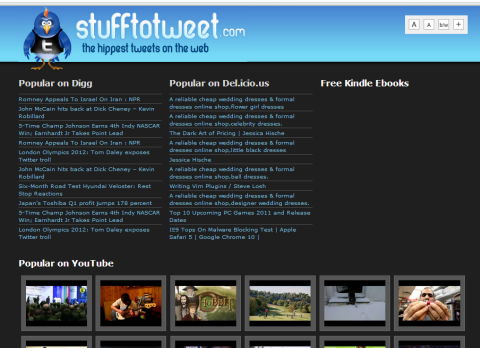
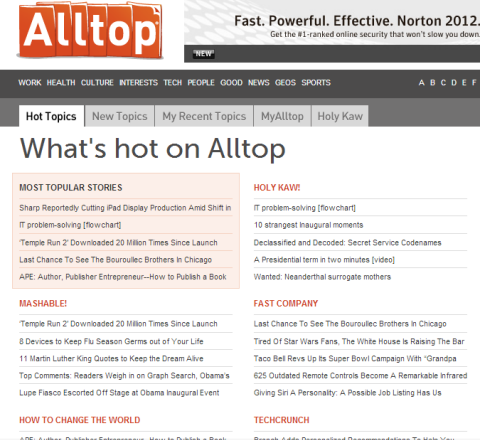

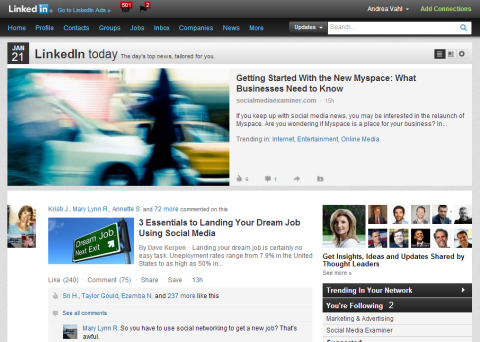
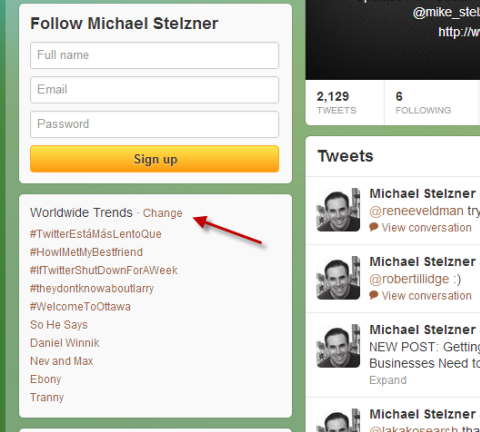
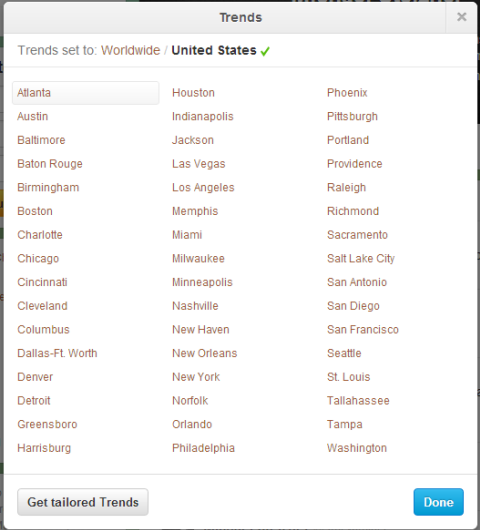

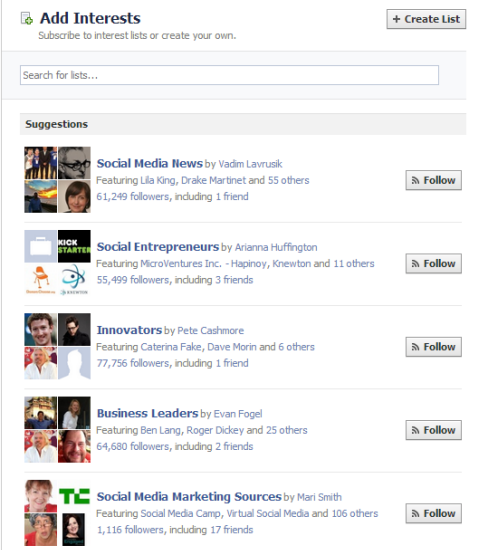
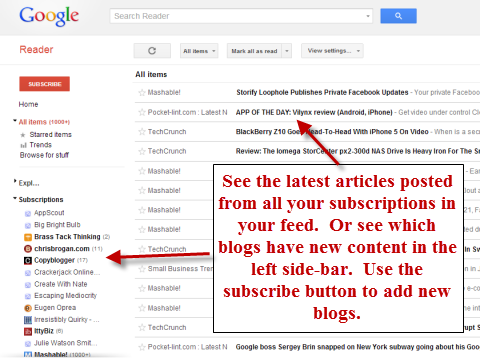
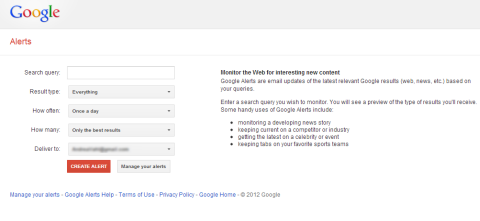
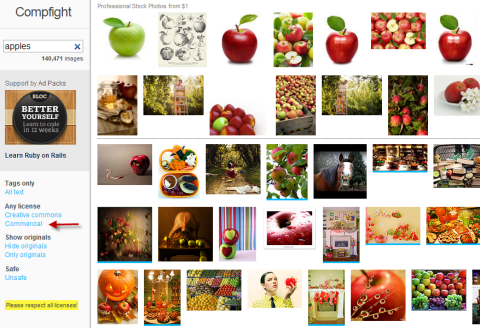

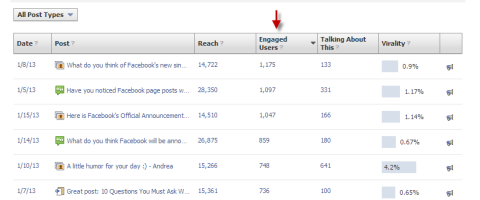






















Truly awesome post, so very actionable…
Thanks, Andrea, for all these specific suggestions. They help a lot!
Hey Andrea.
This is an absolutely fantastic post. I just passed it along to my community.
I never thought to look for news aggregators but will definitely bookmark the ones you laid out.
Thanks for taking the time to write this.
So glad you liked it Jon!
Thanks Joyce and thanks for sharing it! I appreciate it!
Glad you enjoyed it!
Excellent post–great ideas..I often get “stumped” with my content..this post was helpful
Good post Andrea! I recently included “Grandma” in a post about how to find great content using the Post Planner app and the Content Library. Might be useful to your readers. http://www.postplanner.com/content-curation-leverage-status-updates-top-facebook-experts/
Fantastic article, Andrea!
I use a few of your sources but picked up a lot of great tips too. Content curation is something that many people struggle with but it’s something that can be learned. I’m off to share it now. 😀
In the progressive world my go to source is a new app ($) called Crowd Tangle http://crowdtangle.com/ Of the top 10 posts we have on our facebook page this month 6 were sourced from CT.
Shaun Dakin
Social Media
Moms Clean Air Force
I haven’t heard of that one Shaun! Thanks for the heads up!
Glad to help Janeen!
Thanks Scott! I so appreciate your shoutouts in the wonderful Post Planner blog!
Thanks so much Peg! Yes, so many people (myself included) struggle with what to post sometimes! Having good go-to sources help!
Great Article! So much helpful information! Thanks.
Hi Andrea,
I want to recommend EverPost.co. I’ve been using it in the last few days with great success. http://everpost.co
Thanks for the helpful post.
Good article for beginners
Good post Andrea – thanks for sharing. Regarding content, when you have your customers giving a good review or sharing the product with someone else, it sells itself. My business uses OpinionAmp as a proactive way to use real customer reviews to market our product online. Once you put the advertising in the hands of your clients, they’ll sell the product for you. You can’t beat online positive reviews – no better advertising content than a happy client!
The screenshot tool you list, Jing, has many limitations. Instead, try My Screen Recorder. My Screen Recorder is one of the best screen recording software. It records your screen and audio from the speakers or your voice from the microphone – or both simultaneously. The recordings are clear and look great when played back on your website, uploaded to YouTube or used in your presentation. One thing often overlooked – It will record directly to standard compressed format that works with any video editor or any tool, no conversion required. And, the file sizes are small, making them easy to upload or distribute.
http://www.deskshare.com/screen-recorder.aspx
quite an informative read on finding the right content to share on social media